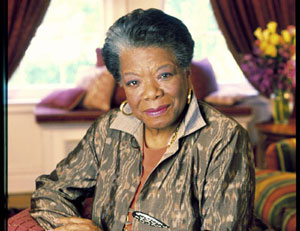
While women of color have made radical strides professionally, economically, and politically over the last 50 years, recent data shows that both racial and sexual discrimination continues to remain a harsh reality on all fronts when compared to white women and men.
According to The Center for Women & Business Research, over the past two decades, minority women started companies at three times the rate of other women; however, their average revenue is less than 25 percent of businesses owned by white men.
The report points to factors such as inequalities in the areas of human resources, poor access to capital and contacts, low cash flow, and insufficient marketing as the main reasons for the slower growth.
Historically, women from all ethnic backgrounds have had little autonomy, power, or recognition as scholars, artists, entrepreneurs, or political professionals. It is only as recent as the 1960’s that even white women began making tangible waves, and some tsunamis as respected professionals, leaders, and entrepreneurs. They finally swapped their brooms for boardrooms, and put the derogatory term “broad,” into a whole new light.
At the height of the Women’s Liberation Movement, during the1960’s, activist and writer, Gloria Steinem said, “I have met brave women who are exploring the outer edge of human possibility, with no history to guide them, and with [the] courage to make themselves vulnerable, [which] I find moving beyond words.”
Many famous minority women like Oprah Winfrey, Sonio Sotomayor, the first Hispanic U.S. Supreme Court Justice, and India’s former Prime Minister, Indira Gandhi, achieved phenomenal success when compared to white males. Most minority women continue to face the tough, daily battles of double discrimination, in their attempt to climb the social and professional career ladders of their choice.
Oprah Winfrey once said, “I was raised to believe that excellence is the best deterrent to racism or sexism. And that shows how I operate my life.”
While that is a wise and prolific sentiment, the reality illustrates that most women of color still face the barriers of racial, and sexual harassment, which we cannot always overcome by sheer optimism, hard work, and determination. And as with any injustice, the surest way to keep a hateful, and motivated entity thriving, is to deny its history.
 Maya Angelou once said that in regards to black women defying the odds despite their brutal history, “The fact that the adult American Negro female emerges as a formidable character is often met with amazement, distaste, and even belligerence. It is seldom accepted as an inevitable outcome of the struggle won by survivors, and deserves respect if not enthusiastic acceptance.”
Maya Angelou once said that in regards to black women defying the odds despite their brutal history, “The fact that the adult American Negro female emerges as a formidable character is often met with amazement, distaste, and even belligerence. It is seldom accepted as an inevitable outcome of the struggle won by survivors, and deserves respect if not enthusiastic acceptance.”
Harriet Tubman described her escape from slavery as follows: “When I found I had crossed that line, I looked at my hands to see if I was the same person. There was such a glory over everything.”
However, since Tubman first witnessed freedom, African-American women have made professional strides that seemed once unattainable. According to The Bureau of Labor Statistics, African-American women represented the largest percentage of businesses owned by minority women (8.4 percent), but they still faced setbacks as they generated the lowest annual revenue.
Education is the greatest factor in deciding the success of minority women in their chosen careers. According to the Bureau of Labor Statistics, while each gender and racial group reported higher earnings with additional education, highly educated black women showed the largest increases in wages.
Between 1995 and 2005, the total minority enrollment on U.S. campuses rose 50 percent to 5 million students, with the number of Hispanics receiving bachelor’s degrees nearly doubling over that period, as well as those earning Doctorates.
However, the statistics show significant gaps among different races. According to the Minorities in Higher Education Annual Status Report, only 13 percent of Hispanics, and 15 percent of African-Americans earned a bachelor’s degree, in comparison to 31 percent of Whites and 62 percent of Asian-Americans, based on the 2000 Census data.
The fearless headway, power, grace, steadfast strength, and colorful vision minority women bring to the conference tables in America and the world is radically evident. These women prove the ideology that the deserved power, and hard-fought equality is an inevitable reality for all women, despite the color of their skin, or ethnic origin.
“What I am is a humanist before anything — before I am a Jew, before I am black, before I am a woman,” said Whoopi Goldberg. “And my beliefs are for the human race — they don’t exclude anyone.”
Although there is little doubt that sexual and racial discrimination will attempt to rear its ugly head on some level, the ever-strengthening gains minority women fought for and will continue to fight for with fervent passion, will open more doors to education, professional success, entrepreneurship, political leadership, and social autonomy.
Although the future is unknown, there is no doubt that women from every racial and ethnic background will experience a socially stimulating, thought-provoking, and revolutionary time as they continue to make life changing scientific and medical discoveries, political paradigm shifts, and find wisdom-filled tangible answers to age-old problems. Only a woman can naturally give birth and nurture these ideologies with a soft and strong shouldered grace.
For many women of color, hearing that we are not smart, strong, or intelligent, only inspires us to become more feisty, competitive, and resolute in the pursuit of both our challenges and successes.
“I love to see a young girl go out and grab the world by the lapels,” says Maya Angelou. “Life is a bitch. You’ve got to go out and kick ass.”
Sources:
Public Policy Institute of California, www.ppic.org/main/home.asp
The Bureau of Labor Statistics, www.bls.gov
The Center for Women’s Business Research,
www.womensbusinessresearchcenter.org/research
Minorities in Higher Education Annual Status Report, www.acenet.edu/AM/Template.cfm?Section=CAREE&Template=/CM/ContentDisplay.cfm&ContentID=23716

Comments
Comments on Article
I think this is a very important topic. It's not fair for women to get discriminated based on their sex. Jobs are very important, it's how people make a living and to not be able to make as money as someone else because your a female, that seems absurd. I know it's gotten better then it was years ago, but I still feel like there's a long way to go. It's a good thing that women have taken important roles, such as working in the Senate. I think this is an issue more people need to be aware of.